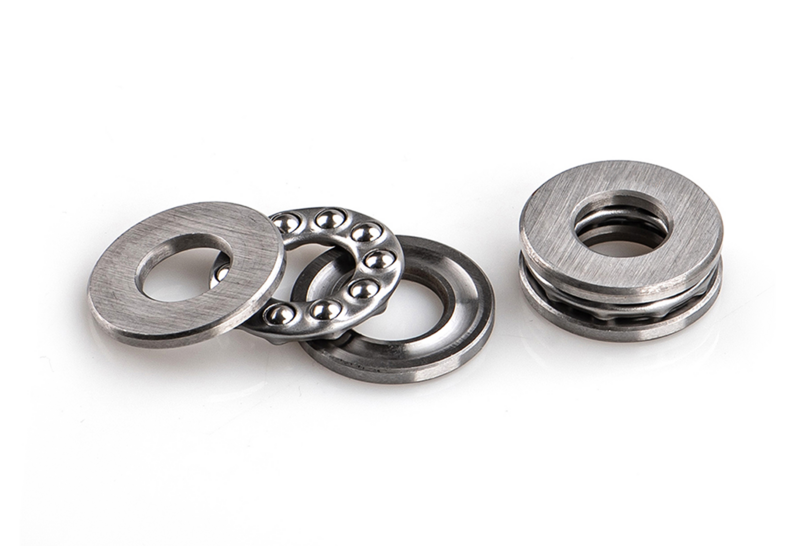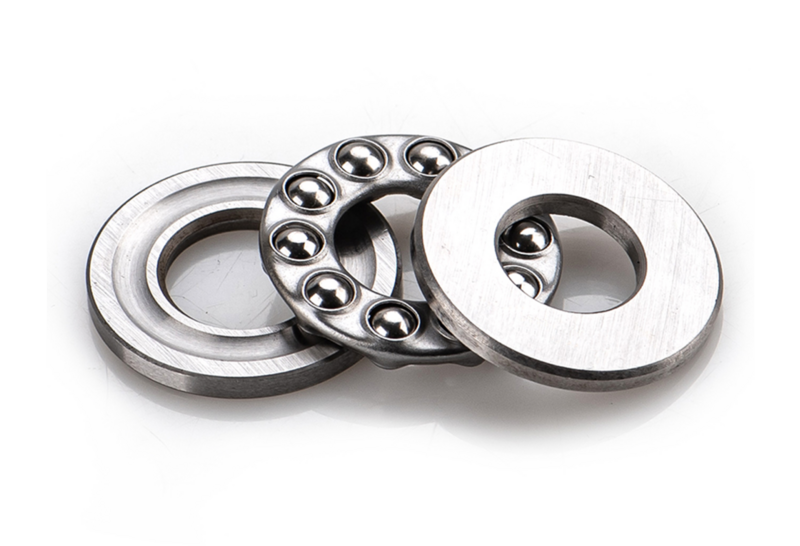

Thrust ball bearings have circular grooves in both the inner and outer rings for the balls to roll in. This type of bearing can only withstand uni-directional axial loads as a single-direction bearing, and bi-directional axial loads as a duplex bearing. The wheels of a duplex thrust ball bearing are fixed to the shaft using shoulder rings, bushings, bolts, and other fittings.
The track rings installed on the shaft are called shaft track rings, and those installed on the bearing housing are called seat track rings. Both the shaft track ring and seat track ring have circular grooves for the balls to roll in. There are two types of this bearing: single-direction bearings that can only withstand uni-directional axial loads, and duplex bearings that can withstand bi-directional axial loads. The central track ring of the duplex thrust ball bearing is axially positioned using a shoulder on the shaft, a liner, a nut, and other components.
Thrust ball bearings cannot withstand radial loads, and the lubricant can splash due to centrifugal force, making it unsuitable for high-speed rotation. When used on a horizontal shaft, attention must be paid to the clearance between the shaft track ring and the seat track ring to prevent the ball retainer from coming off the track.

The thrust ball bearing is easy to install and dismantle, and its operating speed is not dependent on the heat generated or the stability and strength of the cage. It is a primary component in automobiles and machine tools, such as main spindles.
●single-direction angular contact thrust ball bearings:
-high stiffness
-low friction
●double-direction angular contact thrust ball bearings:
-high running accuracy
-high axial stiffness
Some non-standard or currently out-of-stock bearings may not be immediately available. If you have specific requirements, feel free to contact us — we will do our best to confirm lead times and provide alternative solutions.